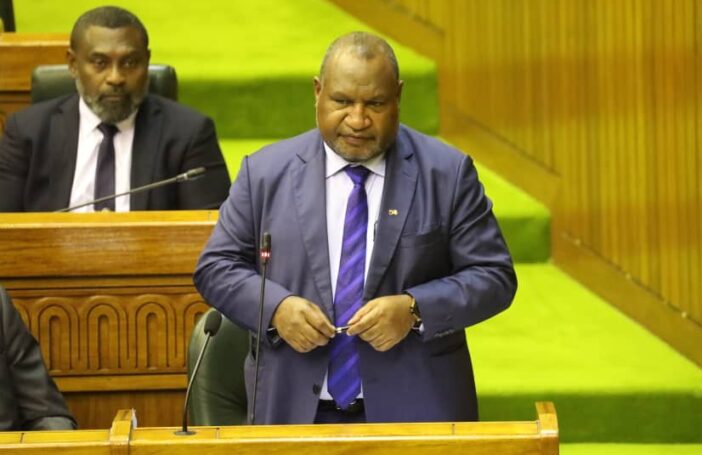After an epic two-day sitting to hear a motion for a vote of no confidence (VONC) in Prime Minister Siaosi Sovaleni, the Tongan parliament on 6 September 2023 voted against the motion 14-11. But any relief that Sovaleni might have felt did not last long.
Less than a week after the vote, on 11 September, the Acting Speaker of the Legislative Assembly of Tonga, Lord Tu’i Ha’angana, informed the house that the VONC proceedings is now being referred to the judiciary for review. The People’s Representatives (PRs) who initiated the VONC allege that the Speaker’s decisions during the deliberations breached their constitutional rights as MPs. Parliament sittings have been suspended until further notice, to allow the movers of the VONC to file their court submission.
Clause 50B of the Constitution of Tonga provides for parliament to hold a VONC in the Prime Minister. Rule 84C of the rules of procedure of parliament requires motions for a VONC to be signed by at least ten MPs. Eight PRs and two Nobles’ Representatives signed the motion. The PRs, representing various constituencies from Tongatapu, Ha’apai, ‘Eua and Niua, were ‘Uhilamoelangi Fasi, Mateni Tapueluelu, ’Aisake Eke, Piveni Piukala, Kapeli Lanumata, Taniela Fusimalohi, Mo’ale Finau and Vatau Hui. The PRs from Vava’u did not participate in this plot to oust the PM. The Nobles’ Representatives were Tu’ivakano and Nuku.
This group of MPs notified the Speaker Fakafanua on 22 August 2023 about their intention to move the VONC, listing 46 reasons. Some of these reasons arose from questions these MPs had asked the government to explain but were never answered. The questions ranged from an increase in complaints from the public about the public service filed with the Ombudsman Commission, to the purchase of an aircraft, an unbudgeted item for the government-owned national airline, and the appointment of two former cabinet ministers to executive positions in the public sector.
Fakafanua issued a press release on 26 August acknowledging that he had received the notice for the VONC and gave Sovaleni five working days to submit a written response to all the questions raised by the MPs. On 1 September, Sovaleni submitted his written response to Fakafanua who, on 2 September, announced parliament would convene on 5 September to hear Sovaleni’s response.
On 5 September, parliament convened and the Speaker outlined the procedures for the VONC. The procedure, which all MPs agreed to, was for one clerk of parliament to read out each question posed by the MPs and for another clerk to read Sovaleni’s response until all the 46 questions were addressed.
Parliament sat for two days. When this process was completed on the afternoon of 6 September, the Speaker invited MPs to speak.
Sovaleni was the first to speak, saying that his responses were sufficient, and he immediately moved a motion to vote on the motion (the VONC). The majority of MPs supported Sovaleni’s motion (17-10), except the MPs who filed the no-confidence motion. The motion was carried.
Sovaleni, in rising to speak first and in moving the motion to vote, prevented further debate on his responses, despite the interventions of Mateni Tapueluelu (MP for Tongatapu 4) and others. Tapueluelu challenged this outcome, citing various rules of procedure for parliament and clauses in the Constitution which essentially allow MPs the right to debate. One of the clauses of the Constitution Mateni cited was Clause 62(2)(b) which allows MPs to propose a motion for debate in parliament.
However, Fakafanua explained the process by referring to specific rules of procedure, in particular rule 45, which is to address the question before parliament at that time – to vote on the motion (the VONC) which Sovaleni moved. Fakafanua reiterated the importance of Clause 62 and explained that rule 45 and the rules of procedure are within the ambit of Clause 62. As such, rule 45 of the rules of procedure applies to the current proceedings, unless Sovaleni withdrew his motion for the VONC to be taken. As Sovaleni did not withdraw his motion and as the majority in parliament agreed to proceed to the VONC without further debate, the VONC took place.
The initiators of the VONC contend that their constitutional right to debate the responses of Sovaleni was denied.
This is the fourth such event since Tonga’s 2010 political reform. Every PM since then has faced a VONC during his parliamentary term – Lord Tu’ivakano (2012), ‘Akilisi Pohiva (2017), Pohiva Tu’i’onetoa (2021) and Sovaleni (2023). The rules governing VONCs have evolved since the 2012 event and exposed weaknesses in the existing rules. The referral of the 2023 VONC proceedings to the judiciary could lead to further amendments to the rules.
Although all four VONC events have been unsuccessful, its constant use by MPs in every parliamentary term has garnered a high level of public interest in the conduct of the government of the day. The public interest in this VONC continues with the ensuing court referral. Sovaleni has pledged to take the positives arising out of the VONC in moving forward. The PRs’ actions will ensure he is held to a higher level of public scrutiny and to account for managing public resources.





Hi Ema Finau. Very interesting. Will be in touch re: a CLA response.
David